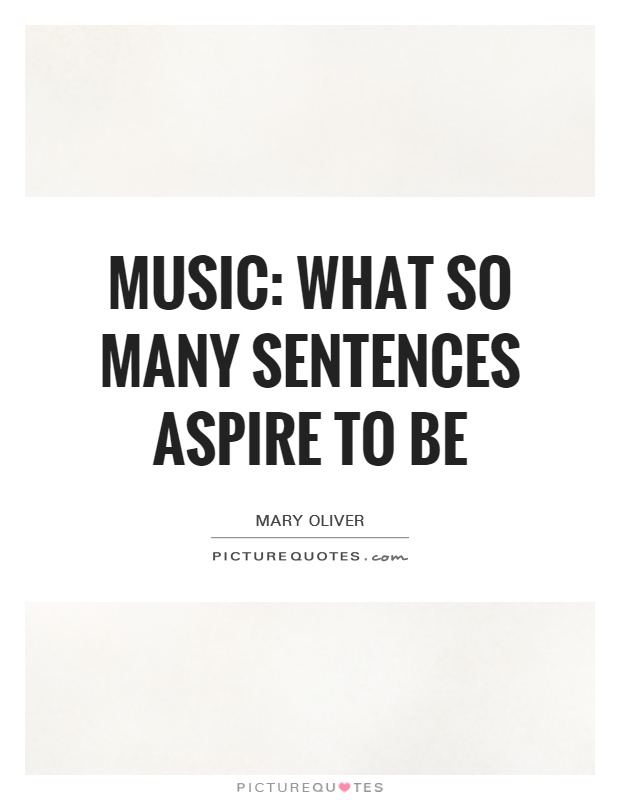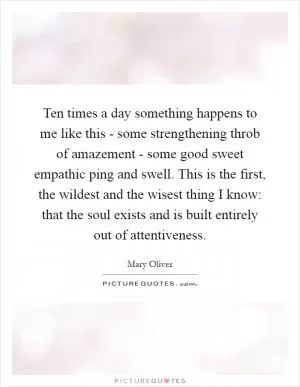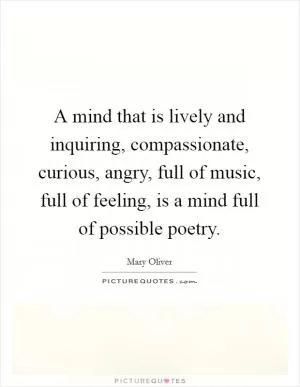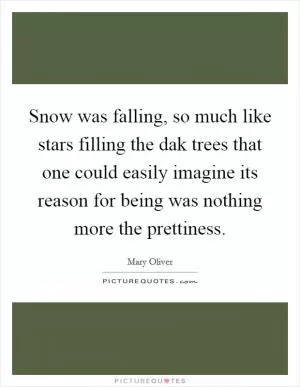Music: what so many sentences aspire to be

Music: what so many sentences aspire to be
Mary Oliver, the beloved poet and Pulitzer Prize winner, once said, "Music: what so many sentences aspire to be." This profound statement captures the essence of music as a form of expression that transcends language and speaks directly to the soul. In the context of Mary Oliver's work, this quote can be interpreted as a reflection of the power of music to evoke emotions and convey meaning in a way that words alone cannot.Oliver's poetry is known for its deep connection to nature and the human experience. Her words have a lyrical quality that resonates with readers on a profound level, much like music does. In her poems, she often explores themes of love, loss, and the beauty of the natural world, using language that is both simple and profound. Just as music has the ability to evoke a wide range of emotions, Oliver's poetry has a similar effect, stirring the heart and soul of those who read her work.
Music, like poetry, has the power to transport us to another place and time, to evoke memories and emotions that lie deep within our hearts. It has the ability to speak to us in a way that words alone cannot, tapping into the universal language of the soul. In this sense, music can be seen as the ultimate form of expression, a language that transcends cultural and linguistic barriers to communicate directly with the human spirit.
For Mary Oliver, music represents the pinnacle of artistic expression, a form of communication that is both universal and deeply personal. Just as sentences aspire to capture the beauty and complexity of the human experience, music has the ability to convey emotions and ideas in a way that is both profound and transcendent. In this way, music and poetry are kindred spirits, both seeking to touch the hearts and minds of those who experience them.












 Friendship Quotes
Friendship Quotes Love Quotes
Love Quotes Life Quotes
Life Quotes Funny Quotes
Funny Quotes Motivational Quotes
Motivational Quotes Inspirational Quotes
Inspirational Quotes